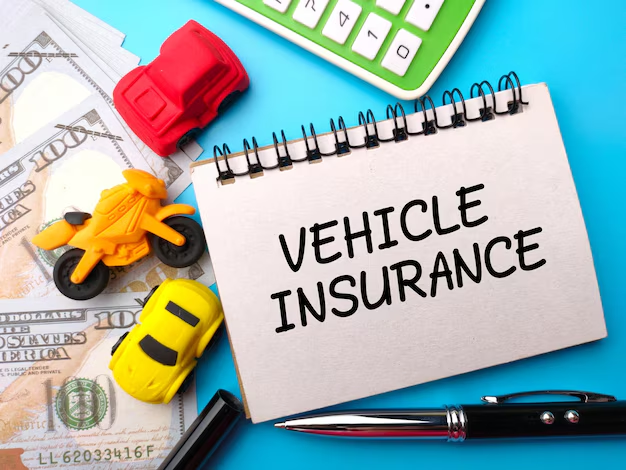Navigating Car Insurance After a DUI: What You Need to Know
Facing a DUI (Driving Under the Influence) charge can be daunting for many reasons, not least of which is dealing with its impact on your car insurance. A DUI can lead to higher premiums and potential policy cancellations, but understanding your situation and knowing your options can help you navigate these challenges successfully.
Understanding the Impact of a DUI on Your Insurance
1. Increase in Premiums
A DUI is considered a serious offense by insurance companies, which often translates into a significant increase in your insurance premiums. Insurers view drivers with a DUI as high-risk, leading to potential rate hikes of 100% or more. The exact increase will depend on various factors, including your location, insurance provider, and driving history.
2. Non-renewal or Cancellation of Policy
Upon receiving notification of your DUI, some insurance companies might decide to cancel your policy or choose not to renew it. This decision largely depends on the company's specific policies and the number of offenses on your record. It's crucial to be aware of your insurer’s stance on DUIs and be prepared to look for alternative coverage if necessary.
3. SR-22 Requirement
Post-DUI, many drivers are required to file an SR-22 form to have their driving privileges reinstated. Contrary to common belief, an SR-22 is not insurance but rather a certificate of financial responsibility that proves you carry the state's minimum required coverage. Although it's often mandatory, the SR-22 can also lead to higher premium costs.
Finding Insurance After a DUI
Shopping Around for Coverage
While it may seem challenging, finding auto insurance after a DUI is entirely possible. Here are some steps to follow:
Compare Different Providers: Begin by getting quotes from multiple insurance companies. Each provider evaluates risk differently, so shopping around can help you find a more affordable rate.
Consider Specialized Insurers: Some companies specialize in high-risk policies, including those for drivers with DUIs. These insurers might offer competitive rates and more lenient acceptance policies.
Evaluating Coverage Options
When considering new insurance options, it's essential to evaluate coverage based on your needs. Here are some key points to compare:
- Minimum Coverage Requirements: Make sure the policy meets your state’s legal requirements.
- Comprehensive and Collision Coverage: Assesses whether these options are financially viable given the potential cost increases.
- Customer Service Reviews: Read reviews and ratings to choose a provider with favorable customer feedback, which can be critical if you need support regarding complicated claims.
Utilizing Discounts and Bundling
Even with a DUI, you might still qualify for certain discounts that can help lower your premiums:
- Good Driver Discounts: After a period of safe driving post-DUI, you might qualify for a good driver discount.
- Bundling Policies: Explore discounts for bundling multiple policies like home and auto insurance.
- Installment Options: Opting for higher deductibles can sometimes result in lower monthly premiums.
Rehabilitating Your Driving Record
Taking Defensive Driving Courses
Enroll in Defensive Driving Courses: Completing a defensive driving course can sometimes reduce insurance premiums. Ensure the course is recognized by your insurer and the state to gain the maximum benefit.
Maintain a Clean Record: Where possible, strive to maintain a clean driving record post-DUI. Adhering to speed limits and following traffic rules will gradually help mitigate the impact of a past DUI on your insurance rates.
Time as a Healing Factor
Time is Key: As time elapses, your DUI will have less influence on your premiums. Most insurers look at the last three to five years of driving history, so maintaining a clean record during this time can significantly improve your insurance options and rates.
Practical Tips and Next Steps
Below is a concise list of practical steps to take if you're navigating car insurance post-DUI:
- 📝 Get multiple quotes: Always compare at least three different insurance providers.
- 🔍 Check for specialized insurers: Explore companies that specialize in high-risk drivers.
- 🎓 Take a defensive driving course: Complete one to potentially earn discounts and demonstrate responsibility.
- 💡 Inquire about discounts: Ask about available discounts for bundling policies or safe driving.
- ⏳ Be patient: Understand that rebuilding your record takes time—stay vigilant about driving safely.
Insurance as a Learning Opportunity
Experiencing a DUI can be a pivotal moment, emphasizing the importance of responsible driving and prompting a reassessment of personal habits. Insurers often reward safe and consistent driving behavior with lower premiums over time. By understanding the landscape and taking a proactive approach to managing your record and insurance policy, you can not only mitigate immediate financial impacts but also set the stage for better financial management in the long run.
Conclusion
While a DUI presents undeniable challenges in obtaining affordable auto insurance, it also offers an opportunity for growth and improvement. By staying informed, shopping diligently for the best rates, and taking steps to rehabilitate your driving history, you can regain control and ensure that one mistake doesn’t dictate your future coverage options. With time, patience, and responsible behavior behind the wheel, navigating insurance after a DUI becomes a manageable, if not enlightening, endeavor.

Related Topics
- Best Car Insurance Providers
- Car Insurance Discounts Explained
- Cheapest Car Insurance States
- Classic Car Insurance Explained
- Collision Vs Comprehensive Coverage
- Gap Insurance Explained
- High-risk Driver Insurance
- How To File a Car Insurance Claim
- How To Lower Car Insurance Rates
- Minimum Auto Insurance Requirements
- Multi-car Policies Explained
- No-fault Insurance Explained
- Rental Car Insurance Explained
- Rideshare Driver Insurance
- Roadside Assistance Coverage
